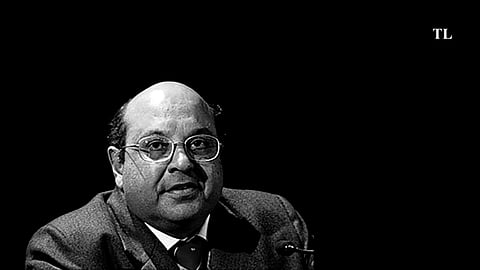

IN a speech, which almost went unreported, former Supreme Court Justice Rohinton Fali Nariman recently said that young persons, students, stand-up comedians, and alike are being booked for freely criticizing the government of the day under sedition laws which are really colonial in nature and have no place under the Indian Constitution. On the other hand, Justice Nariman added, we find great reluctance among the authorities to book people who are giving hate speeches actually calling for a genocide of entire people.
He made these observations while dwelling on the history of Magna Carta and the rule of law, and the due process of law.
Justice Nariman was delivering a keynote address on "Constitutional Underpinnings of the Rule of Law" at the Inauguration of D.M. Harish School of Law, Mumbai on January 14.
Referring to the recent speech of the Vice President, M.Venkaiah Naidu, wherein he disapproved of hate speeches, Justice Nariman said that it was heartening to note that he called hate speeches as unconstitutional, though belatedly.
"Not only it is unconstitutional, but it also happens to be a criminal act. It is criminalized in 153A and 505 (C) of the Indian Penal Code (IPC)", Justice Nariman added.
Last week, the Supreme Court issued notices to the Uttarakhand police and the Delhi police on a petition against the recently held 'Dharm Sansad' at Haridwar and Delhi last year where alleged hate speeches were made against the Muslim community.
Also Read: Two Indias: Behind the rising intolerance in the civil society
Speaking at the lack of minimum punishment for the offence of hate speech, Justice Nariman said: "Unfortunately, in practice, though a person can be given up to three years of imprisonment, this never really happens because no minimum sentence is prescribed. If we really want to strengthen rule of law as contained in our constitution, I would suggest strongly that Parliament amend these laws to provide minimum sentences so that it creates deterrence for others who make hate speech".
Justice Nariman also deplored the silence of the ruling party qua the hate speeches.
"We also have unfortunately other higher echelons of the ruling party not only being silent qua hate speech but almost endorsing it. We heard the other day from the very head of the ruling party a juxtaposition of a Mughal emperor known for being a bigot, namely, Aurangzeb as against Shivaji who was known to be a secular leader…", Justice Nariman said.
Although Justice Nariman did not identify the Prime Minister, Narendra Modi as the maker of the juxtaposition, it is possible to infer that he might have been referring to the Prime Minister Modi's speech at the inauguration of Kashi Vishwanath Dham at Varanasi the previous day, that is, January 13.
He added "Now if as a matter of fact, fraternity is a cardinal value in our Constitution and you want to engage persons in brotherhood, I would have thought you should have chosen a Mughal emperor such as Babar or his grandson Akbar. Akbar was famous for perhaps being one of the most secular rulers that any nation ever known at any point in time".
Also Read: UAPA and sedition law being used to stifle dissent; must be repealed, say former judges
Justice Nariman then read out a letter Babar had written to his son, Humayun in which the former had advised the latter to dispense justice according to the tenets of each community and refrain from the sacrifice of a cow.
Justice Nariman termed the letter beautiful and said Babar's grandson carried all this into practice.
Justice Nariman strongly urged the removal of sedition law by saying, "When you have 19(1)(a) being administered as it is being administered today there is a big red signal that is put up so far as the rule of law is concerned. It is time to do away completely with the sedition laws and allow free speech so long as ultimately, it does not exhort somebody to violence and end up as being hate speech".
He emphasised that it is with the independent judiciary that the rule of law is maintained.
Justice Nariman also criticised the non-implementation of the Sabarimala judgment. He said despite the five judges having been allowed the entry of the women of all the age groups to the temple, no woman was allowed to enter.
He also criticized the Supreme Court for sending the matter to a nine-judge bench.
"Most unfortunately the Supreme Court itself sent this judgment by way of review petition-something unheard of-to a bench of nine judges to decide along with other matters and thereby Sabarimla now has gone into limbo", Justice Nariman said.
He thus cautioned that whatever we take for granted in terms of constitutional rule of law cannot ever be taken for granted. It is very important, Justice Nariman said, to remember that eternal vigilance is necessary not only for liberty but for liberty enforced by courts which is the rule of law of this country.
Justice Nariman also spoke on the importance of the Preamble to the Constitution. He described it as a mini-constitution that gives us the values and principles of our Constitution and the Rule of law, therefore, is contained therein. He said each word in the Preamble is pregnant with meaning.
Read Justice Nariman's entire speech here (as transcribed by The Leaflet's intern, Rajesh Kumar, a first-year student at National Law University, Delhi). Click here for the video.